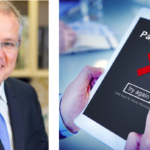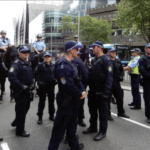Police pursuit and Skye’s Law

Our video and blog post below talks about Police pursuit and Skye’s Law.
Skye’s Law is an amendment to the Crimes Act, and is part of the legislation governing police pursuits and reckless driving.
Skye’s Law was enacted after the tragic death in 2009 of 19-month-old Skye Sassine, who was killed when an alleged robber crashed into the car she was travelling in during a police pursuit in Sydney.
Skye’s Law is intended to deter motorists from taking dangerous measures to evade police.
According to figures from the NSW government, 445 people were convicted under Skye’s Law between May 2010 and March 2012, with 40.4 per cent of those convicted receiving a prison sentence.
If you have been charged with a police pursuit offence, it is a good idea to seek legal representation to help ensure you receive the best possible outcome for your situation.
What do the police need to prove, and is there a defence?
In order for the prosecution to successfully convict you of a police pursuit offence under Skye’s Law, they need to prove beyond a reasonable doubt that you were aware or suspected police were in pursuit, that you didn’t stop, and that you drove in a dangerous or reckless manner or at excessive speed.
This can be difficult for police to prove, and if you have a reasonable defence to suggest that the required factors weren’t in place, you may be able to avoid a conviction.
What are the penalties?
If you are found guilty of a police pursuit offence, the penalty you receive will depend on the individual circumstances.
Skye’s Law carries a maximum penalty of three years in prison for a first offence, and five years for a second or subsequent offence.
In addition to the possibility of a prison sentence, there is also a mandatory disqualification from driving for up to three years.
Being disqualified from driving can affect your ability to undertake employment, and your family’s lifestyle can suffer.
In some cases, the magistrate may choose to reduce the disqualification period to the minimum of 12 months, or even deal with the matter under a ‘section 10 dismissal or conditional release order‘ – which means without conviction or disqualification.
Can I reduce my penalty?
There are a number of ways you may be able to reduce the severity of your sentence if you are convicted of a police pursuit offence.
The automatic disqualification period for an offence under Skye’s Law is three years, but the magistrate can reduce this to the minimum of 12 months at their discretion, or to decide not to disqualify you at all (under a ‘non conviction order’).
If you want to encourage the magistrate to view your case leniently, there are a few steps you can take – such as obtaining character references, taking an approved driving course, and demonstrating that you have taken steps to address any underlying issues that may have contributed to the offence.
What should I do next?
If you are facing a police pursuit charge under Skye’s Law, it is essential to seek experienced legal advice.
Skye’s Law cases are usually treated harshly in the courts, and an experienced, specialist traffic lawyer can give you the best possible chance of avoiding the maximum penalty.
At Sydney Criminal Lawyers®, our accredited criminal law specialists are experienced in handling Skye’s Law cases.
In fact, none of the dozens of clients we have represented in Skye’s law cases have gone to prison. Most have either (a) had their ‘Skye’s law’ charge dropped or replaced with a less-serious charge eg speeding or reckless driving, (b) had their case successfully defended in court or, if they’ve pleaded ‘guilty’, (c) received the minimum disqualification period.
We can work to get the police to drop or replace the charge, or have the charge dismissed in court if the prosecutor is unable to prove one or more of the essential elements of the offence.
Benefit from the expertise and experience of our top criminal lawyers.






